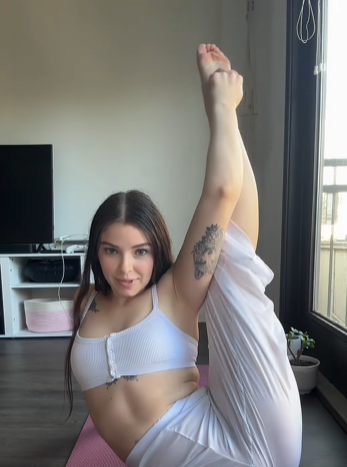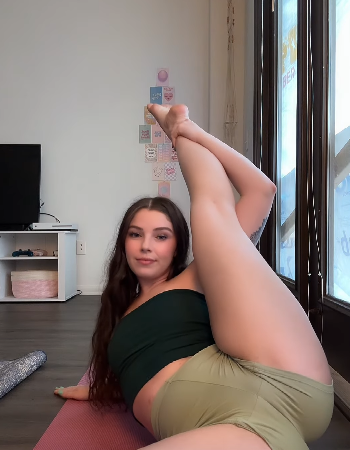
It all started on a quiet Thursday morning. The sun had just peeked through the curtains, and the world outside buzzed with life. I sat up in bed, stretched my arms, and planted my feet on the cool wooden floor. Then it hit me—a strange wave rushed through my head, the walls seemed to tilt, and for a moment, I felt like I wasn’t completely in control of my own body. I had felt a little dizzy before, sure—maybe after getting up too fast or being dehydrated—but this time felt different.
The First Warning Sign
At first, I brushed it off. “Maybe I didn’t sleep well,” I thought. I splashed cold water on my face, tried deep breathing, and hoped it would go away. I didn’t want to make a big deal out of it. But as I moved around, the dizziness returned—subtle, but persistent. It was as if something inside me was off-balance, a quiet warning bell trying to get my attention.
I made it to work and tried to focus, but my concentration kept slipping. I couldn’t ignore the way my vision slightly blurred when I stood up or turned my head. I had to hold the desk for support more than once, pretending to stretch while my brain tried to make sense of it. That afternoon, I finally admitted to myself: this wasn’t just “a little dizzy.” Something was going on.
When the Body Speaks, Listen
Dizziness can mean so many things. For some, it’s a fleeting moment caused by low blood pressure or standing too quickly. For others, it’s tied to inner ear issues, vision problems, or even anxiety. I started thinking through everything—was I not eating well? Had I been overly stressed? I remembered skipping lunch a few times, drinking more coffee than water, and sacrificing sleep for late-night screen time. It all added up. My body had been whispering for a while, and I hadn’t listened. Now, it was shouting.

Seeking Medical Advice
After several dizzy spells in just one week, I made an appointment with a doctor. Sitting in the clinic, I felt a mix of nerves and relief. I didn’t want bad news, but I did want answers. The doctor ran a few basic tests—blood pressure, heart rate, blood sugar—and asked me about my lifestyle. She was calm, thorough, and kind. Eventually, she gave me a probable diagnosis: orthostatic hypotension, meaning my blood pressure dropped when I stood up too quickly.
“It’s manageable,” she said. “You just need to hydrate more, eat regularly, and avoid standing up suddenly. But we’ll run more tests just to rule out anything serious.”
Those words—rule out anything serious—lingered in my mind for the next few days. I couldn’t help but spiral into worst-case scenarios: brain tumors, heart issues, neurological conditions. I learned just how much we take our health for granted until it’s in question.
A Change in Routine
While I waited for test results, I made changes. I swapped coffee for herbal tea, set reminders to drink water, and made sure I didn’t skip meals. I began stretching gently before getting out of bed. I also cut down on screen time and made a point to sleep earlier. It was humbling to realize how poorly I had treated my body in the name of “being busy.”
Interestingly, these changes didn’t just reduce the dizziness—they also helped my overall mood and energy. I felt more grounded. More present. It was a slow transformation, but one that started with something as small—and scary—as feeling a little dizzy.

The Emotional Side of Dizziness
Physically, dizziness can be exhausting. But emotionally, it’s unsettling. You feel out of control, unsure of when the next wave will hit. It can trigger anxiety, especially in social or public situations. I found myself worrying about simple things—what if I felt dizzy while driving? Or while standing in line? That anxiety added another layer to the experience, turning it into more than a physical condition.
I spoke with a friend who had gone through similar symptoms. She said something that stuck with me: “When your body forces you to slow down, listen. It knows more than your brain does sometimes.” That hit home. I had been pushing myself nonstop, ignoring signals. The dizziness wasn’t just a symptom; it was a message.
A Deeper Reflection
Feeling a little dizzy made me rethink not only my physical health, but also my emotional balance. I started journaling each morning, asking myself questions: What am I feeling? What am I avoiding? What needs to change? I began to notice patterns. Stress, lack of rest, and over-committing were all linked to how I felt physically. Dizziness, in a way, was the cost of disconnecting from myself.
I also explored mindfulness and yoga. Simple breathing exercises brought clarity and calm. Gentle movement helped restore trust in my body. It wasn’t about fixing myself, but about reconnecting.

Gratitude Through Vulnerability
When the test results came back normal, I felt both relieved and emotional. There was no hidden disease or dangerous condition—just an out-of-balance lifestyle that needed course correction. Still, the experience was eye-opening. It reminded me that health isn’t just the absence of illness—it’s the presence of care, of awareness, of harmony between body and mind.
Oddly enough, I’m now grateful for that first dizzy spell. It was uncomfortable, even frightening at times, but it served a powerful purpose. It forced me to pause, reassess, and prioritize wellness over busyness. It made me more compassionate toward myself and others going through invisible struggles.
Moving Forward
Today, I still get the occasional dizzy spell if I haven’t slept well or skipped a meal. But now I see it for what it is—a signal, not a sentence. I’ve learned to be kinder to my body, to honor its needs, and to treat rest as essential, not optional.
So if you ever find yourself feeling a little dizzy—don’t ignore it. It might just be your body’s way of saying, Slow down. Take care. You’re not a machine. Listen closely. You might be surprised what you’ll learn.


